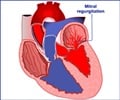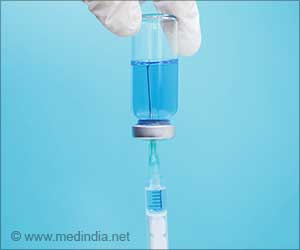American heart association presidential advisory suggests oral penicillin to be a safer option for people with rheumatic heart disease at high risk of a cardiac reaction.

‘People who are at low risk of cardiovascular reaction and who do not have a history of being allergic to penicillin or anaphylaxis be prescribed BPG for treatment and prevention of RHD.’
Read More..




More than 39 million people worldwide have rheumatic heart disease (RHD), a condition in which the heart’s valves are permanently damaged by rheumatic fever, which can occur if a strep throat infection or scarlet fever are untreated or inadequately treated. Read More..
The recommended treatment for RHD is an intramuscular injection of benzathine penicillin G (BPG) given every three to four weeks for a prolonged period of time.
Treatment with BPG for RHD has been limited in part due to patients’ and clinicians’ fears of a severe allergic reaction called anaphylaxis, even though the risk of anaphylaxis following BPG injection is low.
”Until recently, deaths within the minutes and hours after BPG injection have been assumed to be due to anaphylaxis,” said Chair of the Presidential Advisory Writing Group Amy E. Sanyahumbi, MD, pediatric cardiologist at Texas Children’s Hospital and assistant professor of pediatrics at Baylor College of Medicine.
“However, a growing number of reports of BPG-related deaths did not have the features of classic anaphylaxis, and, instead, point to cardiovascular reactions. This distinction is important, as it indicates the need for different strategies to prevent or stop these reactions to BPG.”
Advertisement
Signs of anaphylaxis after BPG injection are usually slightly delayed after the injection, even up to an hour later, and include coughing, respiratory distress, rapid heart rate, low blood pressure that doesn’t respond to position change, fainting, itching, and redness at the injection site.
Advertisement
The advisory suggests that people who are at low risk of cardiovascular reaction and who do not have a history of being allergic to penicillin or anaphylaxis be prescribed BPG for treatment and prevention of RHD.
BPG has proven to be the best treatment for the prevention of recurrent rheumatic fever. For people with higher cardiovascular risks such as severe valvular heart disease or heart failure, treatment with oral penicillin should be strongly considered.
For all patients receiving BPG, the following standard practices are advised:
“This advisory is urgently needed to raise awareness, provide risk stratification and guide health care professionals on easily implementable protocols to reduce risk and overcome reluctance to administer and receive BPG treatment for rheumatic heart disease,” said Andrea Z. Beaton, MD, vice-chair of the advisory writing group.
Source-Medindia












